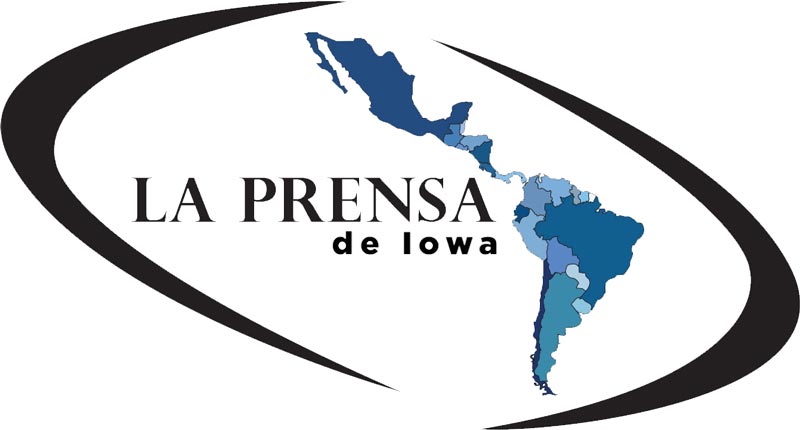Reintroducirán Dream Act el 12 de marzo
/English translation provided at the end.
LA PRENSA
Redacción
Los demócratas de la Cámara de Representantes el 12 de marzo volverán a presentar el Dream Act con un nuevo lenguaje que ofrece protecciones para los beneficiarios con estatus de protección temporal y salida diferida.
La Representante de California Lucille Roybal-Allard reintroducirá la medida, que proporciona protecciones legales permanentes y un camino hacia la ciudadanía para los llamados Soñadores, inmigrantes indocumentados que fueron traídos a los Estados Unidos cuando eran niños, como la Ley de Sueños y Promesas de 2019, según su oficina.
Foto tomada en el 2010 frente a la oficina del ya fallecido Senador John McCain en Tucson-Arizona, cuando un grupo de estudiantes indocumentados sabiendo que corrían el riesgo de ser deportados pacíficamente se pronunciaron a favor de la Ley Dream Act.
La oradora Nancy Pelosi reservó el proyecto de ley HR 6 para la legislación, que ha sido una de las principales prioridades de los demócratas de la Cámara.
En 2017, los demócratas presentaron una solicitud de aprobación de la gestión para tratar de forzar un voto mínimo sobre la medida, ya que los líderes republicanos no la mencionaron, pero la solicitud no obtuvo suficientes firmas. Durante los exámenes parciales de 2018, Pelosi prometió que los demócratas traerían el Dream Act al piso si ganaban la mayoría.
Millones de soñadores se beneficiarían de la legislación, incluidos los aproximadamente 800,000 que han tenido protecciones legales bajo el programa de Acción Diferida para los Llegados en la Infancia. El presidente Donald Trump ha intentado terminar con DACA, pero los tribunales federales le han impedido hacerlo.
Durante las negociaciones sobre la financiación de la seguridad fronteriza a principios de este año que dieron como resultado el cierre parcial del gobierno por 35 días, Trump lanzó una extensión temporal de la financiación DACA a cambio de dinero por un muro fronterizo, pero los demócratas rechazaron la oferta. Los destinatarios de DACA han dicho que no querían que su estado legal se cambiara por el muro.
La implementación de la legislación de Roybal-Allard el próximo mes también incluirá a Pelosi y otros líderes del partido junto con los representantes de Nueva York, Nydia M. Velázquez e Yvette D. Clarke, los otros principales patrocinadores del proyecto de ley, según la oficina de Roybal-Allard.
Es probable que los defensores también asistan a la presentación, como lo han hecho para la introducción de otros proyectos de ley de alta prioridad de los demócratas de la Cámara de Representantes en este Congreso.
La reintroducción del Dream Act ha tomado más tiempo que otras medidas, simplemente se reintrodujo del Congreso anterior, porque incluirá cambios de versiones anteriores.
Entre esos cambios se encuentran la inclusión de protecciones para los beneficiarios del Estado de protección temporal y de la salida forzada diferida. TPS y DED ofrecen protecciones contra la deportación para los inmigrantes estadounidenses que no pueden regresar a sus países de origen debido a una crisis, como un desastre natural, una epidemia o una guerra civil.
Trump intentó terminar el TPS para individuos de Sudán, Nicaragua, Haití y El Salvador, pero un fallo de un tribunal federal le ha impedido hacerlo. Las protecciones de DED para individuos de Liberia expirarán el 31 de marzo.
“Las protecciones de TPS y DED se incluyen porque las acciones crueles e imprudentes del presidente Trump han aumentado la urgencia de abordar estos problemas y proteger a estas personas en nuestras comunidades”, dijo la oficina de Roybal-Allard.
Google Translation
Democrats in the House of Representatives on March 12 will once again present the Dream Act with a new language that offers protections for beneficiaries with temporary protection status and deferred departure. California Representative Lucille Roybal-Allard will reintroduce the measure, which provides permanent legal protections and a path to citizenship for the so-called Dreamers, undocumented immigrants who were brought to the United States as children, such as the Dreams and Pledges Act of 2019 , according to your office. Speaker Nancy Pelosi reserved the HR 6 bill for legislation, which has been one of the main priorities of House Democrats. In 2017, Democrats submitted a request for discharge to try to force a minimum vote on the measure, since the Republican leaders did not mention it, but the request did not get enough signatures. During the 2018 partial exams, Pelosi promised that the Democrats would bring the Dream Act to the floor if they won the majority. Millions of dreamers would benefit from the legislation, including the approximately 800,000 who have had legal protections under the Deferred Action for Childhood Arrivals program. President Donald Trump has tried to end DACA, but federal courts have prevented him from doing so. During the negotiations on the financing of border security earlier this year that resulted in the partial closure of the government for 35 days, Trump launched a temporary extension of DACA funding in exchange for money for a border wall, but the Democrats rejected the offer. The recipients of DACA have said that they did not want their legal status to be changed by the wall. The implementation of Roybal-Allard's legislation next month will also include Pelosi and other party leaders along with representatives from New York, Nydia M. Velázquez and Yvette D. Clarke, the other main sponsors of the bill, according to the Roybal-Allard office. Advocates are also likely to attend the presentation, as they have done for the introduction of other high-priority bills by Democrats in the House of Representatives in this Congress. The reintroduction of the Dream Act has taken more time than other measures, it was simply reintroduced from the previous Congress, because it will include changes from previous versions. Among these changes are the inclusion of protections for the beneficiaries of the temporary protection status and deferred forced departure. TPS and DED offer protections against deportation for American immigrants who can not return to their countries of origin due to a crisis, such as a natural disaster, an epidemic or a civil war. Trump tried to end the TPS for individuals from Sudan, Nicaragua, Haiti and El Salvador, but a ruling by a federal court has prevented him from doing so. The DED protections for individuals in Liberia will expire on March 31. "The protections of TPS and DED are included because President Trump's cruel and reckless actions have increased the urgency of addressing these issues and protecting these people in our communities," said the Roybal-Allard office.
























